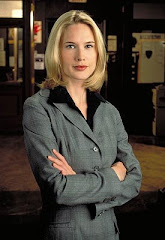Today's episode and class really made me reexamine how privileged I am in today's society. If I were in legal trouble, my family could find a way to hire a good lawyer (not OJ's dream team, but still a good lawyer) and could probably help out with bail. More than that, I was raised in a middle class household that did not expose me to many of the drugs, abuse and trends that often create a cycle of crime that is difficult to escape. Social class means so much more than just what one can afford in the supermarket; it also determines your agency in the legal system and even has ramifications upon the healthcare you recieve. These thoughts arose from our discussions about the make-up of death row with today's guest speaker. I really liked her point that although there are some white folks on death row, there are no rich people. One should not be condemned to death because they have less money than anyone else. All should get the same level of quality defense, police should not automatically suspect the first person that seems good for a crime, and the prosecution shuold be accountable for the verdicts they argue for. Yes, this is a little apple-pie-in-the-sky, but I can dream right?
The system is simply not designed to help minorities of any kind, be they racial, sexual or socioeconomic subsets. I wish that the system was fair to all, and the Innocence Project is thankfully one of the few ways that a couple of people can get true justice. However, this is after they have wrongfully served time in jail and are forced to fear for their lives. It really disturbed me when the speaker mentioned that being factually innocent does not automatically overturn a guilty verdict. Don't those facts create a reasonable doubt? An infalliable verdict is not the way to fight crime; in fact it means that those that are free because someone was blamed with their crimes are getting a free pass. It all comes back to the idea of "whose justice?" Are the innocent in jail getting justice? What about the victims' families who see the culprits walking free? Where is the justice for our court system, which is being hyjacked by the rigid and unfair rules by which it must act?
Beyond social class, the level of heterosexual priviledge in our society hit me hard today. The mother in the episode was clearly a good parent, but a law drove her to kill because she could not be with a child who loved and depended on her. Treating others differently for something that is part of their very being is unfair and wrong. Our system should recognize the right of homosexual couples to express their love however they see fit and if, like today's episode, that means providing love and support to a child, that is wonderful. The theme of lesbian invisibility truthfully reflects how society ignores these women, yet that does not mean that this minority does not suffer from the invisibility.
Also, what justice was there for Sophie when child services was considering giving custody to the grandparents who had never met her? Is that really what is best for the child? Why, for example, should our system support a drug-addicted father having more of a chance of gaining custody than a lesbian mother? This child services issue harkens back to the domestic violence episode we watched earlier in the term. Love sees no colors, sexual orientations or any bias. It is simply humanity caring for humanity, and I wish that our laws reflected that.
Subscribe to:
Post Comments (Atom)
















No comments:
Post a Comment